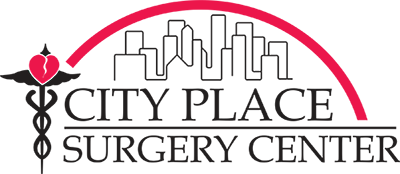It’s Not You, It’s Your Muscles
Seasoned athletes, gym fanatics, and weekend warriors are all aware of the feeling of tired muscles. The mind is ready for more, but the muscle group required to act won’t perform. This is often a sign of muscle fatigue. The muscle needed cannot perform the required task at maximum force or capacity. Muscle fatigue is usually the result of repetitive, intense exercise. The symptoms of muscle fatigue are often confused with tiredness or a lack of energy. Improving athletic ability starts with identifying tired muscles and then taking steps to restore peak performance.

What causes tired muscles?
The body goes through a series of changes during intense exercise. The muscles in question require more blood and nutrients as metabolism spikes. The body’s energy stores go to the overworked muscles, and as a result, the brain, nervous system, and other vital functions decline. The muscles cannot fire as expected when the athlete attempts to lift or move again. Long periods of exercise can also lead to delayed onset muscle soreness (DOMS) 1-2 days later, causing fatigue during muscle recovery. In some cases, a nutritional deficiency may be speeding up muscle tiredness.
Don’t ignore the signs
Muscle fatigue has several symptoms. One of the first is reduced muscle strength. When this happens, the athlete cannot lift a standard weight or complete the expected repetitions. Other symptoms can include muscle pain, soreness, muscle cramps, fatigue, headache, and muscle twitching.
Rest is best
Sometimes, the best action is no action. Rest is often overlooked as an essential part of fitness. Exercise creates micro-tears in muscles, and the resulting inflammation causes DOMS and fatigued muscles. As those micro-tears heal and the process is repeated, the muscle becomes larger and stronger. Rest days are necessary for muscles to perform. That means taking 1-2 days off per week. During that time, the athlete can work on light recovery like yoga, which can lengthen the muscles, or do no workouts. Getting at least 7 hours of sleep also ensures that muscles are rested and eager to go.
A peak-level diet
Muscle soreness and fatigue is sometimes a sign of a nutritional deficiency. Magnesium and potassium, for instance, are minerals that help with muscle function, especially soreness. The B vitamins help convert food to energy and play a part in helping muscles achieve maximum performance. Bloodwork can identify any vitamin deficiencies, and a doctor can recommend supplements as needed. Additionally, consuming enough calories is essential to reduce fatigue. Muscles need sufficient fuel for better function and repair. Ensure adequate protein, carbs, and fiber intake before and after exercise.
Warm up, cool down
Before any intense workout, the body needs time to meet those demands. A light warm-up helps stretch and activate those muscles. When an athlete skips a warm-up, there is a greater chance of muscle fatigue and injury. Cooling down afterward brings the cardiovascular system to a gradual baseline, regulating blood flow and reducing the chances of cramps.
Step into the sauna
Some athletes may find saunas helpful after a workout. Saunas can do wonders for muscle health and recovery. The heat helps with circulation and heart health and may improve future performance. Studies show that infrared saunas can help with recovery from maximum endurance.
A rested athlete
Fatigued muscles can frustrate athletes but are a sign that rest and recovery are needed. Simply incorporating rest days and getting maximum sleep is enough for better performance in the future. Proper nutrition, warm-up, and recovery techniques will set all athletes up for future success.




